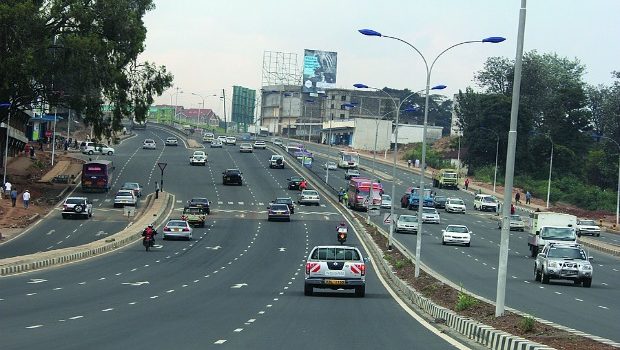The latest KPMG Report shows that improved infrastructure in Africa, technological readiness better health systems and primary education will help the continent become more competitive and create more job opportunities for its increasing young population.
Outdated infrastructure in Africa continues to be a major hindrance to its development the report notes.
The Report documents how Africa, as a continent, regionally and by individual country, compares to its main Developing and Transition Economy competitors as an investment prospect for the limited available foreign direct investment (“FDI”) and considers what steps could potentially be taken to encourage FDI inflows into Africa.
In order to become more competitive and improve their future growth prospects,” says Cheadle, “Developing Countries need to invest in human and physical capital and FDI inflows are vital in order for them to do this
John Geel, Managing Partner, Deal Advisory for KPMG in South Africa, says that the Report considers Africa’s position in the current global economic environment and measures how Africa ranks, by individual country, by region and as a continent, with competing Developing and Transition Economies.
“This Report gives insights into what direction the world economy is expected to take in the context of the current trust crisis by Developed and other economies as identified in the Edelman Trust Barometer 2017, resulting in the recent increase in populist views by the general populations of the world,” says Robbie Cheadle, Associate Director, Deal Advisory for KPMG in South Africa.
The current global economic environment
The global economy, and in particular the Developing and Transition Economies, is currently facing two major challenges. The first challenge is sluggish growth leading to stagnant global trade, subdued investment and increasing policy world-wide uncertainty. The second challenge being that the world is on the brink of the fourth industrial revolution which is expected to drive significant change to global industry and business models and possibly lead to a net loss of jobs.
A further impact of the lacklustre global economic environment is the lower gross domestic product (“GDP”) growth, reduced FDI inflows and higher inflation being experienced by Developing and Transition Economies. For Sub-Saharan Africa, specifically, this also comes at a time when these countries have also been, and continue to be, impacted by lower commodity prices, adverse weather conditions and political and security challenges.
“In order to become more competitive and improve their future growth prospects,” says Cheadle, “Developing Countries need to invest in human and physical capital and FDI inflows are vital in order for them to do this. The recommendations that Emerging Market Developing Economies implement a comprehensive, consistent and co-ordinated approach to policy making, address economic vulnerabilities and enhance international integration by promoting trade and FDI are certainly worth implementing.”
Comparing Africa to other Developing and Transition Economies
From an overall global competitiveness point of view, Africa’s average competitiveness ranking is 21% compared to Latin America and The Caribbean’s average ranking of 40%, the Transition Economies average ranking of 45% and Asia’s average ranking of 57%. This implies that Africa is significantly less competitive than Asia, Latin America and The Caribbean (grouped as one) and the Transition Economies.
In order to encourage competitiveness and growth, the Report suggests that the legal and administrative framework within which government, business and individuals operate must be efficient and of a good quality. The institutional environment must encourage investment by protecting the legal rights of investors and enabling them to fully leverage information and communication technologies in daily activities and production processes resulting in increased efficiency and innovation.
Corruption continues to be an impediment to development of infrastructure in Africa as it reduces the efficiency and quality of the institutional environment in a country and this impacts on the relevant country’s ability to be competitive. Africa has a low ranking in the Ease of Doing Business Survey 2016, which means that it is difficult for companies to start and maintain a business in many African countries.
GDP growth for Emerging Market Regions is forecast to continue to be subdued during 2017 and 2018. Africa has the highest forecast average GDP growth at 4.3% in 2017 and 4.4% in 2018. Asia has the second highest forecast average GDP growth at 3.4% in 2017 and 4.0% in 2018. These growth forecasts are subject to significant uncertainty, particularly with regards to global policy uncertainty regarding trade and increasing protectionist tendencies.
Finding solutions
“African countries need to focus on improving their rankings in the Corruption Perceptions Index, which dropped significantly during 2016, and the Ease of Doing Business Survey thereby promoting their countries as the country of choice for the limited available FDI inflows,” says Geel.
Focus should be directed to improving education, health and infrastructure in Africa so that they are prepared, to the best extent possible, for the fourth industrial revolution and to derive the best benefits available from the changes to come.

